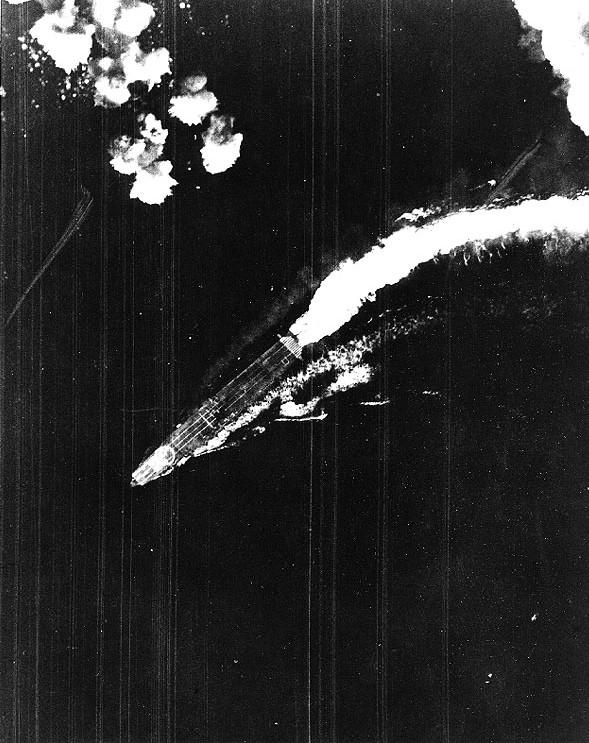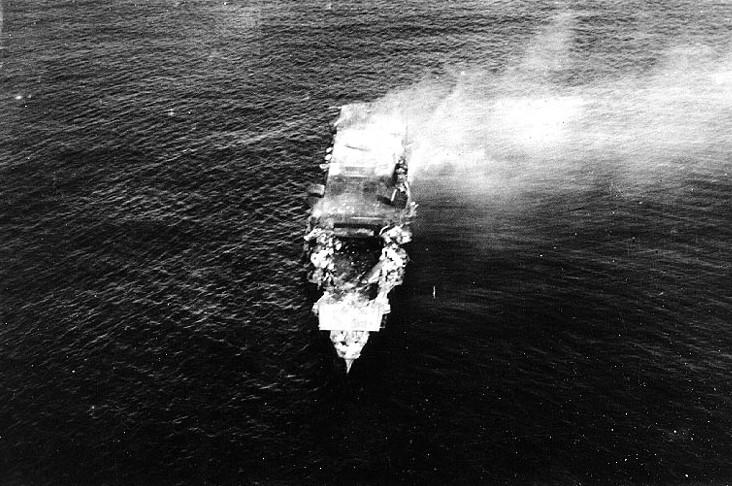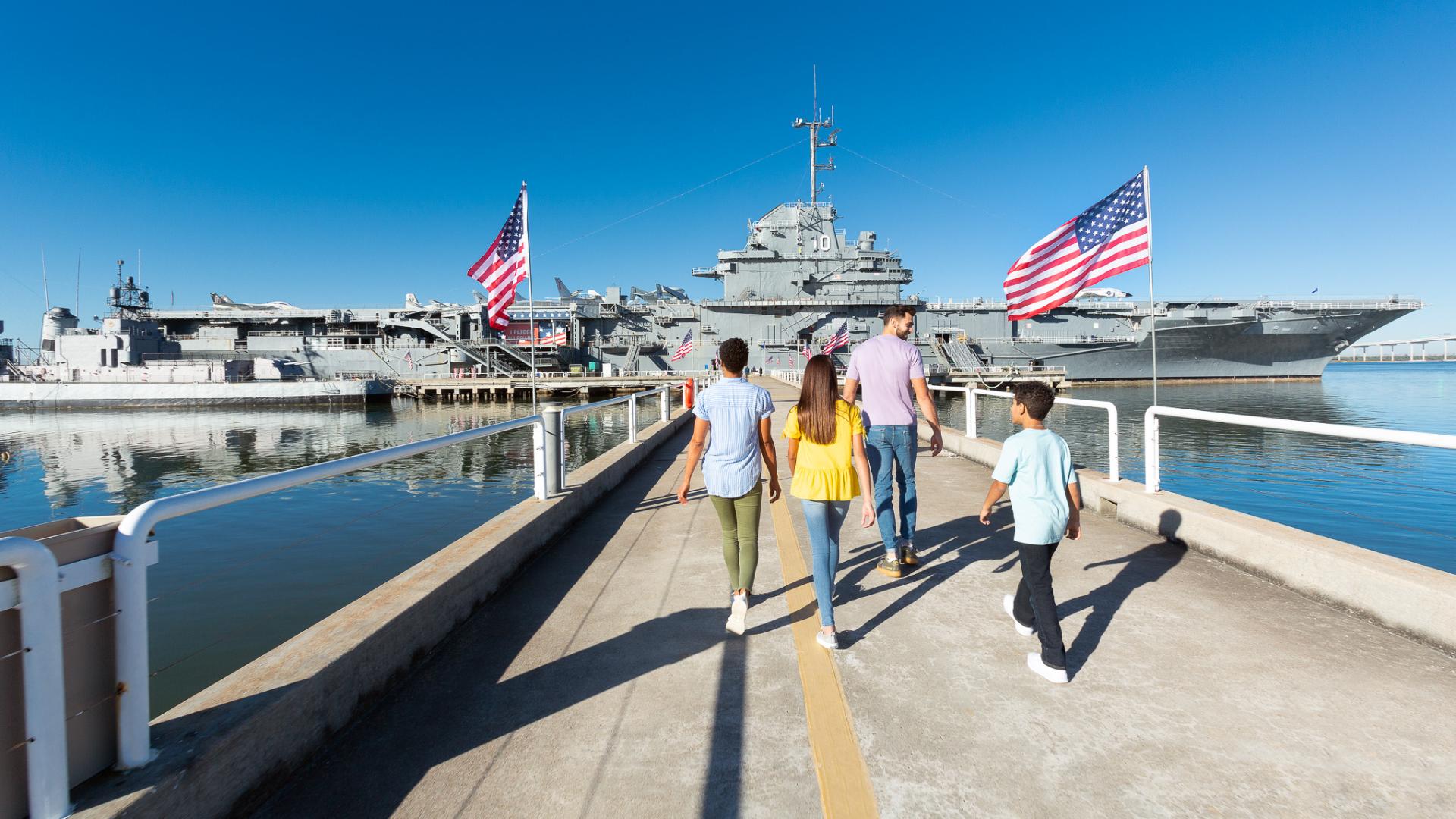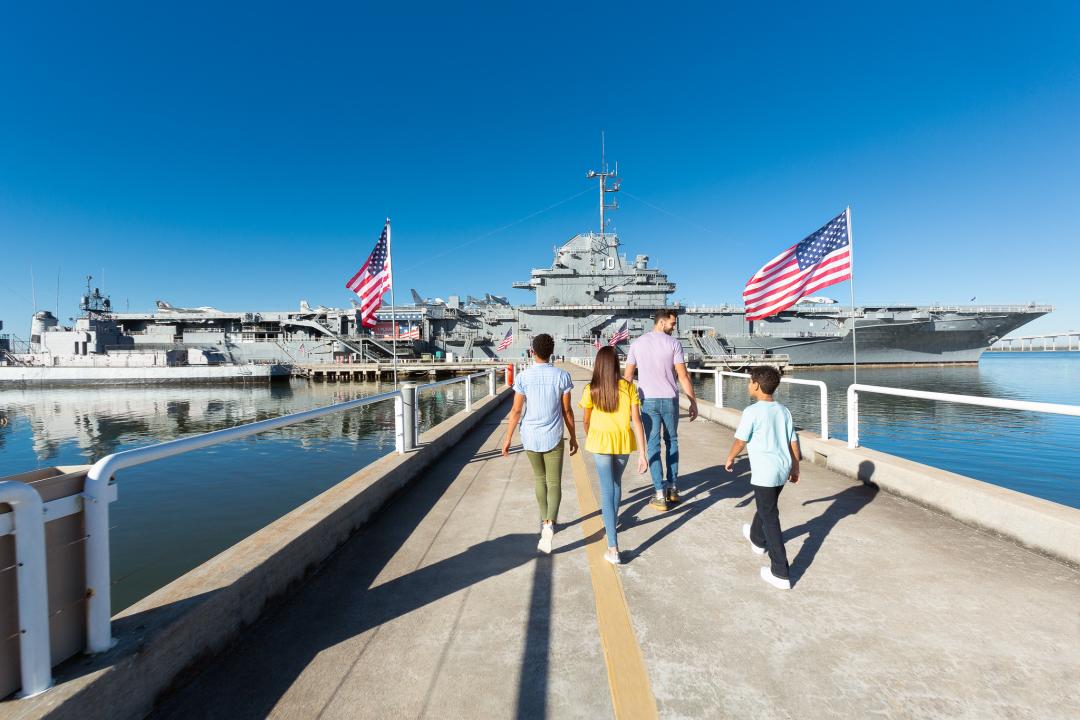
Today sixty-eight years ago, the United States' Navy brought an end to Japanese domination of the Pacific by sinking four (Akagi, Kaga, Hiryu and Soryu) of her ten aircraft carriers at the Battle of Midway. There have been many myths on how the United States' Navy was able to defeat the world's most powerful Navy at Midway in June of 1942. Shattered Sword: The Untold Story of the Battle of Midway by Jonathan Parshall and Anthony Tully published in 2005 does a magnificent job of debunking old myths and getting to the truth of the Battle of Midway.
Notice the carrier Hiryu below as she twists and turns between 0800 and 0830... B-17's have dropped 500 pound bombs from over 20,000 feet up, notice they are not close as they impact the ocean off Hiryu's starboard quarter...SBD's will do the job though at 1710 when they strike Hiryu and use her hinomaru (Sun circle, national flag) as their aimpoint. Notice the missing hinomaru and hole in the flight deck on the second image of Hiryu below.
[caption id="attachment_1063" align="aligncenter" width="500" caption="Japanese aircraft carrier Hiryu under attack."]


Japanese aircraft carrier Hiryu burning. The Battle of Midway marked the end of America's dark days in the Pacific War. The war had begun with the Japanese having ten aircraft carriers in the Pacific, while the United States' Navy only had three carriers. The Japanese found themselves in the drivers seat for the direction of the early part of the war. Interestingly most senior Japanese naval officers had not wanted to fight the United States. Admiral Yamamoto stated while planning the Pearl Harbor attack, "I find my present position extremely odd - obliged to make up my mind and pursue unswervingly a course that is precisely the opposite of my personal views." With the loss of their largest carriers at Midway, Japan would remain on the defensive for the rest of the war.

